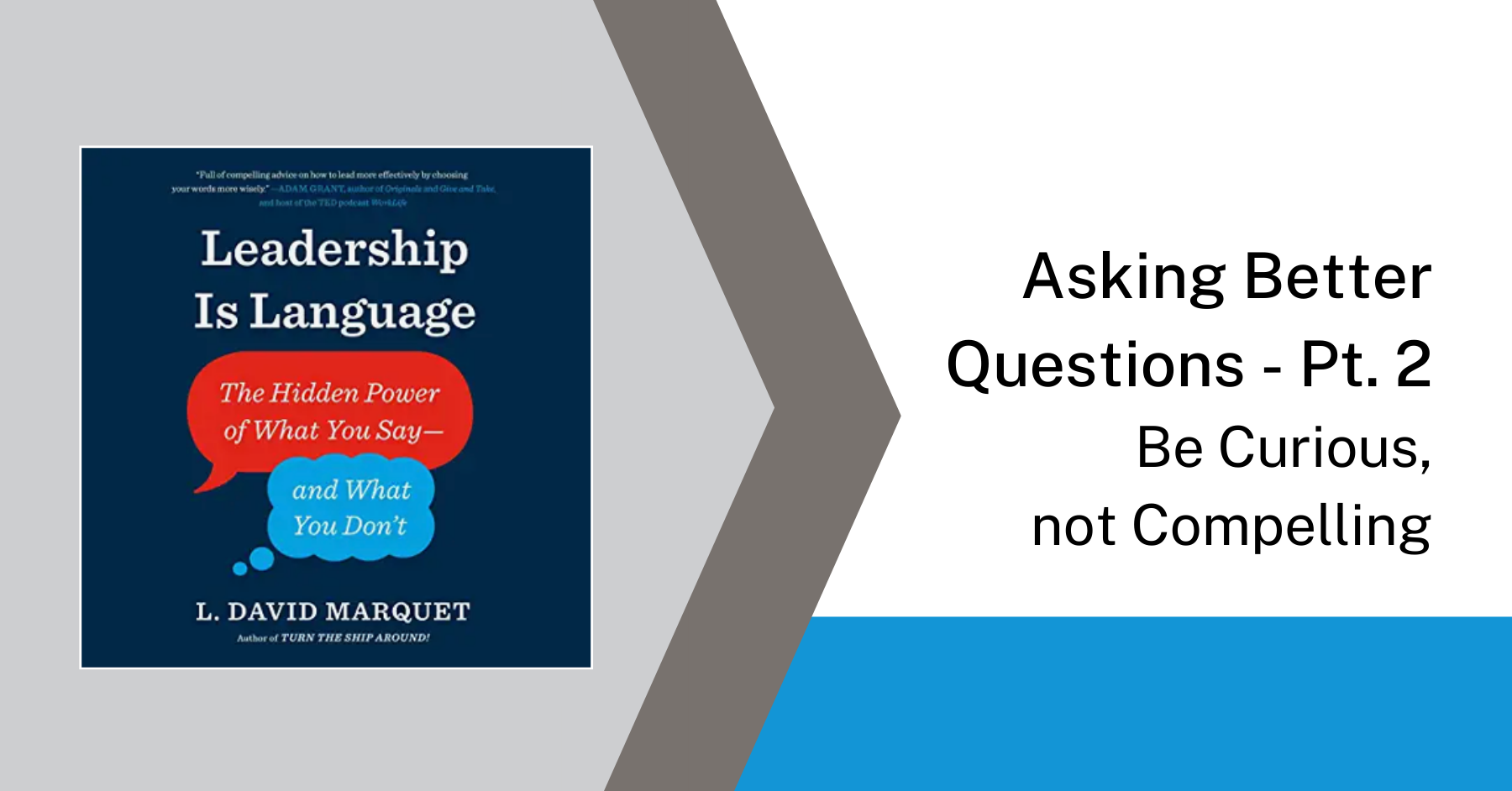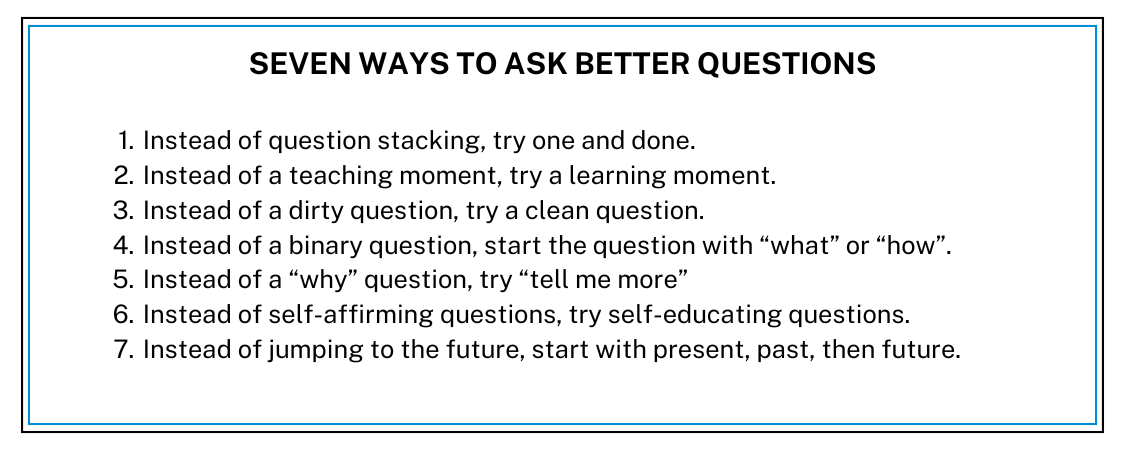
How we phrase our questions can be as impactful as what we ask.
In this series of posts, I’ll review some best practices for asking better questions. (If you missed Part 1 “Are you asking the right questions?”, here’s the LINK)
David Marquet is a decorated military leader, author, and thought leader; in his latest book, “Language is Leadership,” David discusses vital ways to use language to improve your team’s effectiveness.
How leaders ask questions is critical to gathering essential information and setting the organizational culture.
My summary of David’s advice on questions is: Be Curious, Not Compelling
Staying curious informs both what questions you ask and how you ask them while being very mindful of any power gradients that exist. Poorly framed questions from people in a position of power rarely generate valuable insights.
David shares the Seven Deadly Sins of Questions and some better alternatives in this handy list:

My biggest takeaway has been to stop asking closed-ended questions such as “do you agree?”; these often have bias built in which drives your subordinates to answer in the affirmative without yielding further insights.
Instead, ask questions with a range of answers.
For example, “On a scale of 5 to 1, how ready are we to launch?”
Once you give people a scale, you get a more honest answer AND more opportunity for further discussion.
For example, “Bob, I see you answered a 2. Tell us more about that. What would need to be true to rate this a 4 or 5?”










